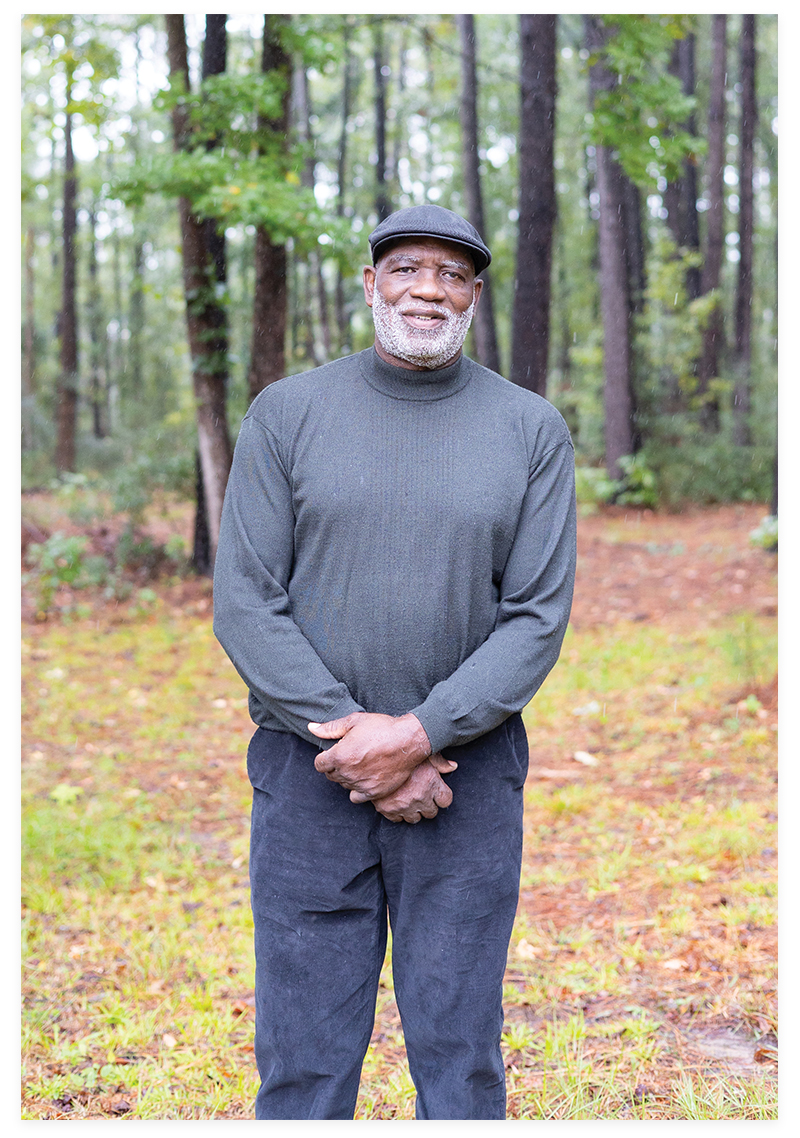
Habersham in Mount Pleasant’s Phillips Community, which was recognized in September by the National Register of Historic Places as a “traditional cultural place”—a national first for a Black settlement community.
Written By Stephanie Hunt
Portrait By Sarah Martin
As a boy, Richard Habersham and his Phillips Community neighbors called Highway 41 the “back road.” The main “front road,” winding along the waterway and through this historic African American settlement community’s major homesteads, was Habersham Road, named for his family, whose roots here date to 1875. “I had 500 acres to roam when I was growing up. We could explore and ride bikes anywhere and not worry. Neighbors knew me. The same was true when my kids were growing up,” says the longtime Phillips Community president.
Today, Highway 41 is far from a back road. The traffic-snarled thoroughfare leads to some of Mount Pleasant’s wealthiest and fastest-growing subdivisions—Park West, Dunes West, and RiverTowne. When Charleston County proposed widening it from three lanes to five in 2020, plowing directly through Phillips, Habersham led the fight to protect his neighborhood and its surrounding wetlands. “They say [the expansion] represents progress, but progress for who?” he asks. Habersham’s dogged leadership and strategic coalition-building resulted in partners like the Coastal Conservation League, Historic Charleston Foundation, the Center for Heirs Property, and the Southern Environmental Law Center supporting the push for an alternate solution, one that was more sensitive to this historic community and to the vulnerable wetlands surrounding it. “You have to be able to make relationships and talk to people, otherwise you’re just making noise,” he says.
Ultimately, this fight was successful, as was, more recently, the drive for the Phillips Community to be recognized by the National Register of Historic Places as a “traditional cultural place”—a national first for a Black settlement community. But this retired truck driver knows something about the long haul, and the fight likely will continue to be just that, as development pressure shows no signs of letting up. Neither, however, does Habersham. “Property value is not just monetary,” he says. “It’s also about quality of life.”